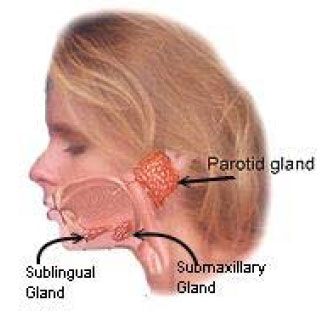
Mumps, or "Rubella" as it is commonly referred to, is a viral infection that affects the pair of salivary gland in your ears
These are known as the parotid glands. This means that they are located in the area between your ears.
Symptoms of mumps typically include swollen face and neck, fever, and loss of appetite. Usually mumps only occurs during childhood, however it can also occur in adults. Mumps typically occurs at an earlier age, but can still occur even in young adults. Most cases of mumps occur in children, however it can also occur in adults.
Mumps typically causes fever, a loss of appetite, fatigue, headache, tiredness, nausea, and facial pain. You may experience a rash in the affected area or on your chin. Mumps can be extremely painful when it affects the area between your ears and the area of the neck. The rash is usually itchy and there are some who have pain in their ears too.
Mumps is not normally known to affect children more than an average amount of times. While there may be a small percentage of children that do develop mumps, most of them don't have serious consequences. This doesn't mean though that you should forget that mumps can infect children and that it's important to keep up a healthy immune system for your children.
Mumps can also spread through coughing and sneezing. These are the ways that molds get into the air and travel from person to person. The same goes for the mites that are responsible for spreading this disease. These mites are tiny and live in hair follicles, the ear, and the mouth.
Another common symptom of mumps is experiencing pain in the chest or on your breastbone. You may experience pain when you are sneezing or coughing. Other people may have pains in their back or chest.
Mumps that occur in adulthood will not usually lead to a full blown case of this disease
However, it can still cause complications if left untreated. Complications are rare but possible if the body is not properly prepared to battle mumps and other viruses. If you think you may have mumps, talk to your doctor immediately for a proper treatment.
Symptoms of mumps may seem to get better over time. However, they are never fully cured and you need to be aware of the risks of a case occurring.
Don't hesitate to seek medical attention if you are experiencing any symptoms that don't go away. You don't want to wait until it's too late to get treatment. Your doctor can run tests to see if your body is able to fight off mumps and other viruses.
One way to avoid the mumps virus is to make sure you don't have the mumps virus if you don't yet. These days, most people with mumps have had it before they were even diagnosed. That means the virus is more widespread than you think. Make sure you're not one of those unlucky few that have been infected before you've gotten the mumps.
If you think you do have mumps, make sure you don't ignore it or delay seeking treatment for fear of having the mumps virus. You may have the mumps virus but you can still get the disease by not seeking proper treatment and not receiving treatment for the virus as quickly as you should have.
A lot of people think the only people who contract mumps are adults, however, this is not true. Many children get the mumps virus too. It's important that you know all of the facts about the mumps virus and its contagious nature so you can protect yourself from being exposed to it.
The best way to avoid getting the virus is to make sure that you keep up a healthy immune system and stay healthy. If you or your child are concerned about being exposed, seek out the right advice from a doctor or health care professional.